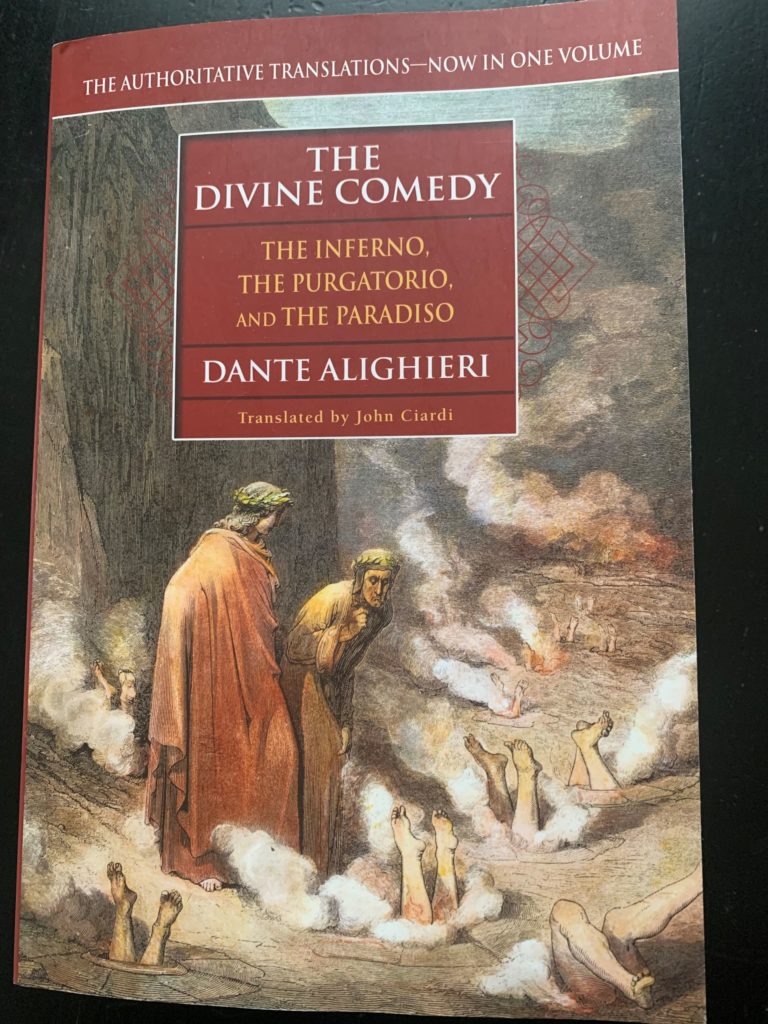This canto also covers some of two circles. Once again I am going to focus on the one of them, circle five the wrathful and sullen. Circle six will cover several cantos so we can cover that adequately next week. Don’t forget that this circle officially began last canto, but don’t worry I will cover it here.

It wasn’t just my imagination but reading the notes for this canto said that the last chapter was a change in philosophy. It is speculated that Dante took a break at Canto VII and that it was intended to be one circle per canto. But that break brought out a re-imagination about how the story was going to go. As a consequence, I am rolling with it. Next week will be three cantos for the first time.
There isn’t too much going on from this level. The setting is the river Styx. The condemned seem to be under the black and stinky water. Once again there was only one encounter, a fella by the name of Fillipo Argenti. He was apparently an argent enemy of Dante’s.
If you ask me, it seems like Dante was the wrathful in the story. Dante is using his writing as the vengeance that he seeks. Very little is said other than sharply condemns his enemy. So, I guess we will have to look at the crime (or end it here).
I think we all generally know what wrathful means. So let us look at sullen. The definition that I see for for the word means gloomily or resentfully silent or repressed. I rhetorically ask, is this really worthy of the fifth circle of hell? To date, the crimes have all been pretty petty to get into hell.
Apparently, level six is a transition from what is considered outer to inner hell. To get into inner hell, it is all contained in iron wall like a prison called the city of Dis. Another thing that I kind of find interesting is that most of these so called sins to date would not be considered crimes in our society. No assault or rape or murder, maybe those will be in the inner circle but even theft or larceny? Once again, the wrathful one seems like Dante.
I am not totally sure where to really go with this today other than it is very clear that this story is personal to Dante. So I am giving you an early weekend this week. The pace is going to pickup next week and go into hyperdrive for the following week. Get ready.
End Your Programming Routine: Like a good Christian, I believe in redemption. So, it would be a good idea for my soul not to get involved in too much wrathfulness or sullenness or gluttony or any of the other sins. That being said, if we do slip into any of those things, I can’t help but be thankful that something is out there to help out eternity.
Recent Comments